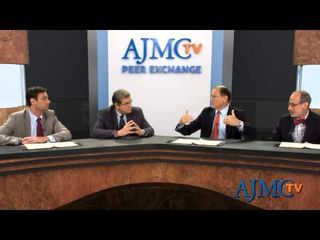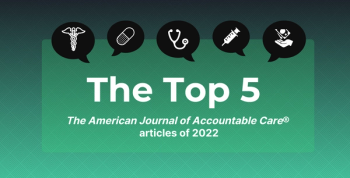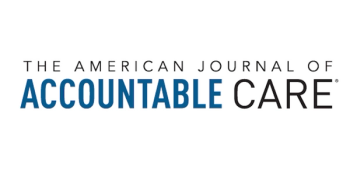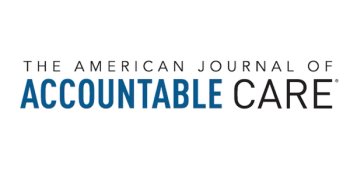
Policy
Latest News
Latest Videos

CME Content
More News

The top content published in The American Journal of Accountable Care® (AJAC) covered redesigning health care, value-based care, and novel payment models, like the ACO REACH model.

The editors of The American Journal of Managed Care® reflect on the past year and discuss what they’re looking forward to in 2023.

This year’s most-read articles on women’s health surrounds racial inequalities, barriers to care, and other topics that affect a woman’s quality of life.

COVID-19 vaccines have prevented more than 3.2 million deaths, but the US death rate this year has not declined to prepandemic numbers; Texas Attorney General (AG) Ken Paxton’s office has requested driver’s license records with sex changes from the past 2 years, among other documents, from the Texas Department of Public Safety; even though hepatitis C virus (HCV) is curable, some people who are incarcerated are going without treatment and dying.

The effects of the COVID-19 pandemic were clear in the US national health care expenditure analysis of spending last year, as federal spending dropped, but health care use rebounded in 2021.

Further understanding of effective incentives and disincentives is needed to ensure that evidence-based policy and guidelines regarding tobacco cessation are effectively translated into practice at the patient level.

This article describes the implementation of Medicaid smoking cessation guidance in a large, urban federally qualified health center to examine how state-level provisions translated into clinic-level policies.

The authors describe a novel training program for death certifiers in Pennsylvania, which has been designed to specifically focus on some of the main challenges in the death certification process and resulted in a useful model that can potentially be adopted by other states or municipalities.

The changing landscape of health care during COVID-19 placed focus on increasing accessibility to mental health resources other than the emergency department (ED), with potential savings of over $4 billion in annual costs and improvements in patient outcomes.

Impending cuts to Medicare physician services could have an overwhelmingly negative impact on millions of older patients and individuals with disabilities across the country.

The novel coalition was announced at the Institute for Healthcare Improvement (IHI) Forum, which took place December 4-7 in Orlando, Florida.

Health plan dissatisfaction was higher among Medicaid managed long-term services and supports (MLTSS) beneficiaries who did not follow through with an intention to change health plans.

A session at the 2022 American Society of Health-System Pharmacists Midyear Clinical Meeting & Exhibition reviewed some trends in the 340B drug pricing programs and Medicaid.

A clinical pharmacy specialist with the Department of Veterans Affairs (VA) described how the department is trying to address the needs of female veterans, including their reproductive health, as well as addressing disparities in chronic diseases.

Due to anticompetitive practices, the United States lags Germany and Switzerland in the number of biosimilars on the market, while also having substantially higher prices for both biosimilars and reference products.

Teenage brains prematurely aged by 3 years during pandemic lockdowns; Washington state health officials report high flu activity and 7 deaths; medical groups ask a Texas judge to refrain from issuing a nationwide injunction against the preventive health screenings covered by the Affordable Care Act (ACA).

During an Institute for Value-Based Medicine® event held in New York City, Samyukta Mullangi, MD, MBA, fellow in medical oncology at Memorial Sloan Kettering Cancer Center, discussed how disruptions from the COVID-19 pandemic are ushering in health care delivery reform.

The risk of experiencing symptoms of postpartum depression may be higher in women who give birth after unintended pregnancies vs those who get pregnant intentionally, according to a recent study.

Joseph Alvarnas, MD, vice president of government affairs at City of Hope and chief clinical adviser of AccessHope in Duarte, California, spoke on the influence that the California Cancer Care Equity Act is having on legislative efforts in other states, as well as future steps to promote accessible, affordable, and effective cancer care for patients nationwide.

A new report highlights the role at-home care played for geriatric patients during the COVID-19 pandemic.

Updated Kidney Disease: Improving Global Outcomes guidelines and a consensus report with the American Diabetes Association support the use of finerenone in certain patients who have chronic kidney disease (CKD) that may be linked to type 2 diabetes (T2D).

A brief report found that a need for prior authorization affected biologic approval wait times for patients with psoriasis, especially those with private insurance.

Liability concerns cited by education administrators and nurses regarding the use of stock albuterol in school are overblown, according to researchers who examined how legislation about the issue has played out in Illinois.

Joseph Alvarnas, MD, vice president of government affairs at City of Hope and chief clinical adviser of AccessHope in Duarte, California, spoke on how the California Cancer Care Equity Act will allow oncologists to escalate the care of patients with advanced cancers toward established centers that can better meet their needs, as well as implications from the decision to exclude genomic testing coverage in the bill.

An analysis of Medicaid coverage found that Mississippi was the only state not to provide coverage for human papillomavirus (HPV) vaccination in adults aged 27 to 45 years.


















